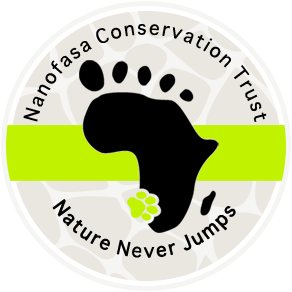


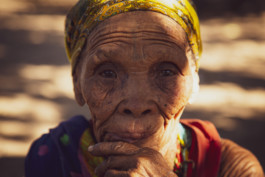
Our unwavering commitment to language revival extends beyond the preservation of spoken words alone. It encompasses the digitization of the Yaaku language and the creation of a unique repository of wisdom—a "Bush Encyclopedia" that transcends the boundaries of Yaakunte to embrace other endangered languages and ecosystems. In our quest to safeguard this linguistic treasure trove, we employ a multifaceted approach.
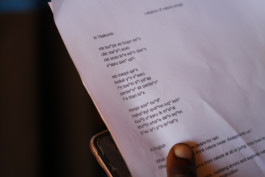
At the heart of this initiative lies the meticulous preservation of oral tradition. Traditional stories, songs, and the invaluable oral history of the Yaaku people are recorded with meticulous care and safeguarded for posterity. This meticulous process ensures that these cultural treasures remain accessible to future generations.
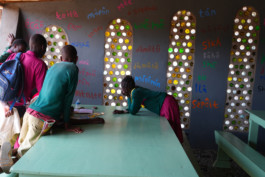
Songs and games in the Yaaku language emerge as potent tools for cultural expression and revitalization. They breathe life into the language, fostering a profound sense of identity and pride within the community. The rhythms of ancient songs and the spirit of traditional games echo through generations, connecting the past, present, and future.
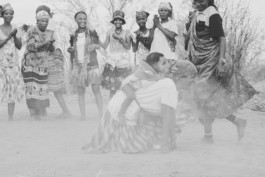
In the realm of dying languages, we unlock the voices of the past. These languages tell the untold stories of those who have been long forgotten. The custodians of our last wilderness areas, these forgotten people protect the very essence of our planet's most pristine landscapes.
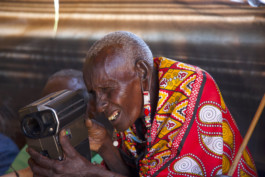
BUSH TV
As part of our preservation efforts, we engage in wisdom interviews with elders from various tribes. These interviews transcend language, offering profound insights into the wealth of indigenous wisdom. But we aspire for more—a 360-video and standard video platform called "BUSH TV." This innovative platform will enable elders and young poeple to share their wisdom with the world, speaking of love, happiness, fear, life, death, and the untold stories of the forgotten people who safeguard our last wilderness areas. Through these efforts, we aim to create a "Bush Encyclopedia" filled with timeless wisdom and stories that have the power to cure the poverty of the heart and transport people to places where the Wi-Fi is weak, but the connection is strong.
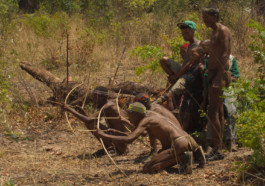
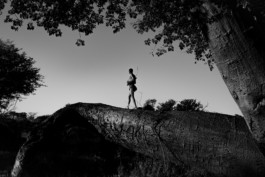
Nanofasa operates within the traditional homeland of the Ju/’hoan San, also commonly known as Bushmen in Namibia. This remarkable group holds the distinction of being considered the world's oldest culture, with a lineage that dates back to the very origins of hunting and gathering societies. Despite this rich heritage, the San community now grapples with extreme poverty, driven in large part by their forced displacement from their ancestral lands. Tragically, these lands are increasingly encroached upon for illegal cattle grazing, leaving the San people struggling to maintain their traditional way of life.
The San community represents one of the most marginalized and vulnerable groups in Southern Africa. The challenges they face are multifaceted. Food security is alarmingly low, with many San families struggling to access adequate nutrition. Educational opportunities are limited, and few San learners are able to complete their basic education. Illiteracy rates are high, and unemployment is a pervasive issue.
Within an expansive area of 9000 square kilometers, approximately 2300 Ju/‘hoansi San individuals reside, and a significant proportion of this population comprises children who, without intervention, face an uncertain future. Their prospects are starkly limited by circumstances beyond their control.
The health status of the San community is undeniably linked to their low socioeconomic status. Tragically, San life expectancy is a staggering 22% lower than the national average, standing at a mere 48 years. These sobering facts underscore the urgent need for comprehensive support and empowerment initiatives, like those championed by Nanofasa, to uplift the Ju/’hoan San community and create a path towards a more equitable and sustainable future.
The Yaaku, also known as the Mukogodo, are an indigenous ethnic group living in Kenya, primarily in the Laikipia County region. They are one of the smallest and most marginalized indigenous communities in Kenya. The historical background of the Yaaku is characterized by their unique culture, deep connection to the forest, and the tragic loss of their language.
Arrival and History:
The Yaaku are believed to be descendants of the Ogiek, who are traditionally hunter-gatherers. They are believed to have migrated to Kenya from the Great Lakes region and settled in the Mukogodo Forest area. Over centuries, the Yaaku developed a distinctive way of life deeply connected to the forest, with hunting and gathering being central to their subsistence.
Culture:
The Yaaku culture is rich and deeply tied to the natural world. Their traditional way of life revolves around hunting and gathering, and they have an intricate knowledge of the Mukogodo Forest's flora and fauna. They are known for their unique skills in honey harvesting, weaving, and traditional herbal medicine.
Connection to the Forest:
The Mukogodo Forest is not just a geographical location for the Yaaku; it's their spiritual and cultural heartland. They have a profound connection to this forest, which is one of the few remaining dry forests in Kenya. It's a vital site for biodiversity, wildlife corridors, and cultural identity for the Yaaku people. The forest provides them with essential resources for their traditional way of life, including food, medicine, and materials for crafting.